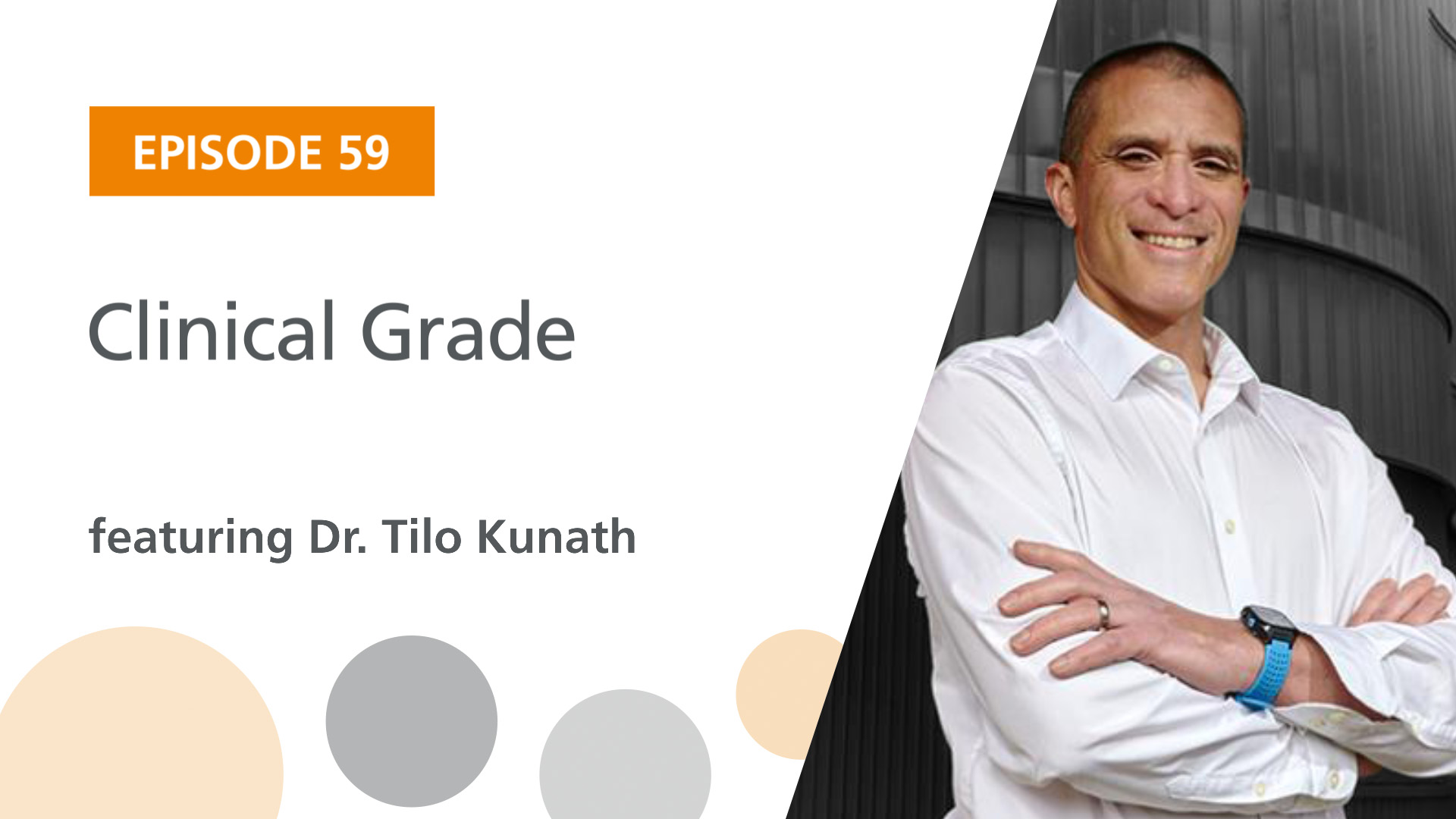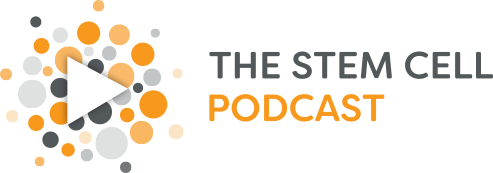
Podcast: Play in new window
Guest:
Dr. Tilo Kunath discusses his work on characterizing clinical grade stem cells so they can be used for patient therapies. We talk to Tilo about his past and current work, including his latest paper published in Scientific Reports. Don’t miss Tilo’s funny story!
Resources and Links
Boeing Develops New Metal that Could Revolutionize Airplanes – Boeing reveals microlattice: a metal so thin that it can sit on the head of a dandelion.
Smoking High-Strength Cannabis May Damage Nerve Fibres in Brain – People who regularly smoked strong skunk-like cannabis revealed subtle differences in the white matter that connects the left and right hemispheres and carries signals from one side of the brain to the other.
A Breakdown Product of Aspirin Blocks Cell Death Associated with Alzheimer’s, Parkinson’s and Huntington’s Diseases – A new study finds component of aspirin binds to an enzyme, called GAPDH, which is believed to play a major role in neurodegenerative diseases, including Alzheimer’s, Parkinson’s and Huntington’s diseases.
Sleep Deprivation Affects Stem Cells, Reducing Transplant Efficiency – Researchers found that a sleep deficit of just four hours affects by as much as 50 percent the ability of stem cells of the blood and immune system to migrate to the proper spots in the bone marrow of recipient mice and churn out the cell types necessary to reconstitute a damaged immune system.
Genome-Wide RNA-Seq of Human Motor Neurons Implicates Selective ER Stress Activation in Spinal Muscular Atrophy – This article shows that selective activation of ER stress underlies motor neuron death in spinal muscular atrophy.
Genetically Engineered Salmon Approved for Consumption – The federal regulators approved a genetically engineered salmon as fit for consumption, making it the first genetically altered animal to be cleared for American supermarkets and dinner tables.
Microgravity Inhibits Regenerative and Differentiation Potential of Embryonic Stem Cells – A study performed on the NASA Space Shuttle Discovery showed that exposure of mouse embryonic stem cells to microgravity inhibited their ability to differentiate and generate most cell lineages, needed for the development of bone, muscle, the immune system, and other organs and tissues.
Cranberry Juice Capsules Cut UTI Risk after Gynecological Surgery – This article reveals that cranberry juice capsules reduce the rate of urinary tract infections (UTIs) in women undergoing elective benign gynecological surgery involving urinary catheterization.
Microbes Play Role in Anti-Tumor Response – The presence of certain types of gut microbes in mice can boost the anti-tumor effects of cancer immunotherapy.
Amyloid-Targeting Immunotherapy Disrupts Neuronal Function – In this article, some antibodies designed to eliminate the plaques prominent in Alzheimer’s disease can aggravate neuronal hyperactivity in mice.
Expert Panel Approves Human Gene Editing – A new expert panel says research on human gene editing should proceed, with one notable exception: no putting edited cells in the womb to make a baby.
Creating Patient-Specific Neural Cells for the In Vitro Study of Brain Disorders – This article outlines the researchers’ collective views on the current state of hiPSC-based disease modeling and discusses what they see to be the critical objectives that must be addressed collectively as a field.
Growing Stem Cells Faster on Seaweed – Scientists at the Fraunhofer Institute for Biomedical Engineering IBMT in Sulzbach have identified seaweed from Chile as a particularly efficient source of nutrients for the expansion of pluripotent stem cells.
Stem-Cell Gene Therapy Restores Immune System Response – Researchers at the National Institute of Allergy and Infectious Diseases found that gene therapy may be able to rebuild the immune systems of older children, adolescents and young adults who suffer from the disease known as X-linked severe combined immunodeficiency.
A qPCR ScoreCard Quantifies the Differentiation Potential of Human Pluripotent Stem Cells – Scientists provide an in-depth characterization of the revised signature panel (commercially available as the TaqMan hPSC Scorecard Assay) through embryoid body and directed differentiation experiments as well as a detailed comparison to the teratoma assay.
MSU and Stanford Study: Ancient Viral Molecules Essential for Human Development – Top stem cell scientists at Montana State University (MSU) and Stanford University have shown that certain noncoding RNA molecules, which are genetic remnants of an ancient virus, play a critical role in balancing decisions in early human development – namely pluripotency of early stem cells, a genetic state that enables them to modulate the gamut of human developmental decisions and timing.
Researchers Grow Retinal Nerve Cells in the Lab – Johns Hopkins researchers developed a method to efficiently turn human stem cells into retinal ganglion cells, the type of nerve cells located within the retina that transmit visual signals from the eye to the brain.
Lumen Formation Is an Intrinsic Property of Isolated Human Pluripotent Stem Cells – Researchers demonstrate that dissociated human pluripotent stem cells are intrinsically programmed to form lumens.
Photo Reference: Courtesy of Dr. Tilo Kunath

